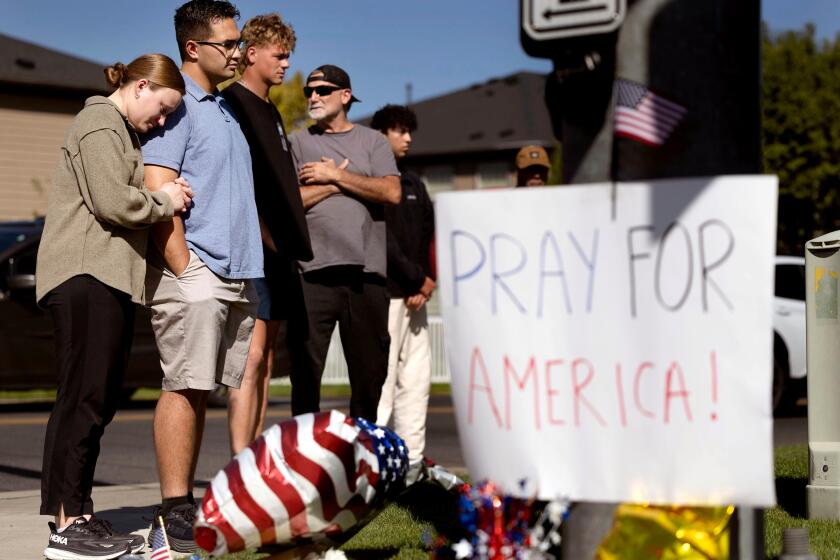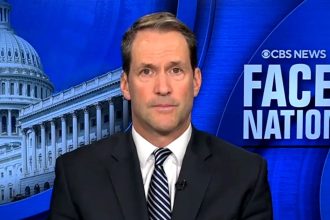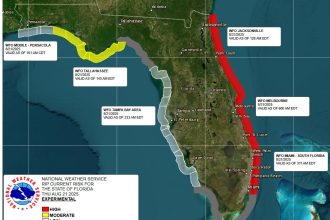Professor Kevin Waite had just finished a seminar on the run-up to the American Civil War on Friday morning when a student cautiously raised her hand.
“Can I ask about the Charlie Kirk situation?” she said in Waite’s classroom at the University of Texas at Dallas.
The student, he said, wondered whether recent events carried any echoes of the past. Hyperbolic comparisons between modern political conflict and the horrific bloodshed of past centuries have previously been the stuff of doomsday prepper threads on Reddit, but this week’s shooting made it a mainstream topic of conversation.
While cautioning that the country is nowhere near as fractured as it was when the Civil War erupted, Waite and other scholars of the period say they do increasingly see parallels.
“Our current political moment is really resonating with the 1850s,” the historian said.
He and other scholars note similarities between the deployment of troops to American cities, widespread disillusionment with the Supreme Court, and spasms of political violence — especially from disaffected young men.
Read more: Supreme Court upholds ‘roving patrols’ for immigration stops in Los Angeles
“What we call polarization, they called sectionalism, and in the 1850s there was a growing sense that the sections of the country were pulling apart,” said Matthew Pinsker of Dickinson University.
Even before Kirk’s alleged assassin was publicly identified as a 22-year-old who left antifascist messages, President Trump blamed the shooting on “radical left political violence.”
Conservative influencers amplified the rhetoric, with Trump ally Laura Loomer posting on X, “More people will be murdered if the Left isn’t crushed with the power of the state.”
Violence was far more organized and widespread in the late 1850s, historians caution. Congressmen regularly pulled knives and pistols on one another. Mobs brawled in the streets over the Fugitive Slave Law. Radical abolitionist John Brown and his sons hacked five men to death with swords.
Read more: California hopes law from bloody era of U.S. history can rein in Trump’s use of troops
But some aspects of modern politics are worryingly similar, scholars said.
“What almost scares me more than the violence itself is the reaction to it,” Waite said. “It was paranoia, the perception that this violence was unstoppable, that really sent the nation spiraling toward Civil War in 1860 and ’61.”
Top of mind for Waite was the paramilitary political movement known as the Wide Awakes, hundreds of thousands of of torch-toting, black-capped abolitionist youths who took to the street out of frustration with their Republican representatives.
“There was this perception that antislavery Republicans hadn’t been sufficiently aggressive,” Waite said. Wide Awakes, he said, believed “that it was the slaveholders that were really pushing their agenda much more forcefully, much more violently, and antislavery [politicians] couldn’t just sit down and take it anymore.”
Most Democratic politicians of the era were fighting to expand slavery to the Western territories, extend federal power to claw back people who’d escaped it, and enshrine slaveholders rights to travel freely with those they held in bondage.
The Wide Awakes struck terror in their hearts.
“For their political opponents, it was a really scary spectacle,” Waite said. “Any time a cotton gin burned down in the South, they pointed to the Wide Awakes and other more radical antislavery Northerners and said, ‘This is arson.'”
For Waite, the Wide Awakes can be compared to an antebellum antifa, while the paramilitaries of the South were more like modern Proud Boys.
“The South was highly militarized,” he said. “Every adult white man was part of a local militia. It was like a social club, so it was easy to take these local militias and turn them into anti-abolitionist defense units.”
Still, incursions by abolitionists into the South were rare. Incursions by slave powers into the North were common, and routinely enforced by armed soldiers.
Legal scholars have already noted striking similarities between Trump’s use of the military to aid his mass deportation effort. The Trump administration has leaned on constitutional maneuvers used to enforce the Fugitive Slave Act — a divisive law that empowered slave catchers from the South to make arrests in Northern states — in legal arguments to justify the use of troops in immigration enforcement.
Read more: Trump’s case for sending troops to help ICE involves precedent from Fugitive Slave Act
“I argue it was the fugitive crisis, more than the territorial crisis, that drove the coming of the Civil War,” Pinsker said. “The resistance in the North essentially made the Fugitive Slave Law dead-letter. They broke the enforcement of that law through legal, political and sometimes protest resistance.”
Many Northern states had passed “personal liberty laws” to prevent Black people from being snatched off the streets and returned to slavery in the South — a move Waite and others compare to sanctuary laws across the country today.
“The attempt to uphold these personal liberty laws and simultaneously the government’s attempts to take these Black fugitives led to violence, and to perceptions that the so-called slave-power was the aggressor,” Waite said.
By the late 1850s, Northerners were equally fed up with the Supreme Court, which under Chief Justice Roger B. Taney was seen as a rubber stamp for slaveholders’ goals.
“The Supreme Court in the 1850s was dominated by Southerners, mostly Southern Democrats, and they were pro-slavery,” said Michael J. Birkner of Gettysburg University. “I think the Dred Scott case and the court being on one side is absolutely a parallel with today.”
The Dred Scott decision, which ruled Black people ineligible for American citizenship, is widely taught in schools.
But far fewer Americans know about the Lemmon case, a New York legal battle that could have effectively legalized slavery in all 50 states had the Taney court heard it before the war broke out in 1861.
“Slaveholders were eager to get that case before Taney, because that would have nationalized slavery,” Waite said.
Despite the similarities, scholars say that there is nothing inevitable about armed conflict, and that the imperative now is to bring the political temperature down.
“Donald Trump has not been offering that message with the clarity it needs,” Pinsker said. “He says he’s a big fan of Lincoln, but now is the moment for him to remember what Lincoln stood for.”
When it comes to parallels with America’s deadliest conflict, “there’s only one lesson,” the historian said.
“We do not want another civil war,” Pinsker said. “That’s the only message that matters.”
This story originally appeared in Los Angeles Times.









